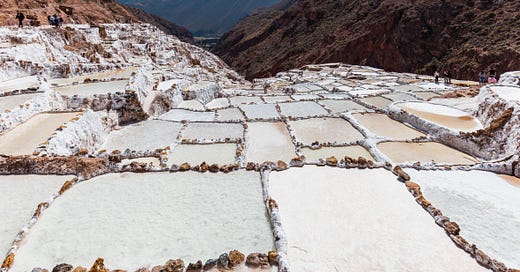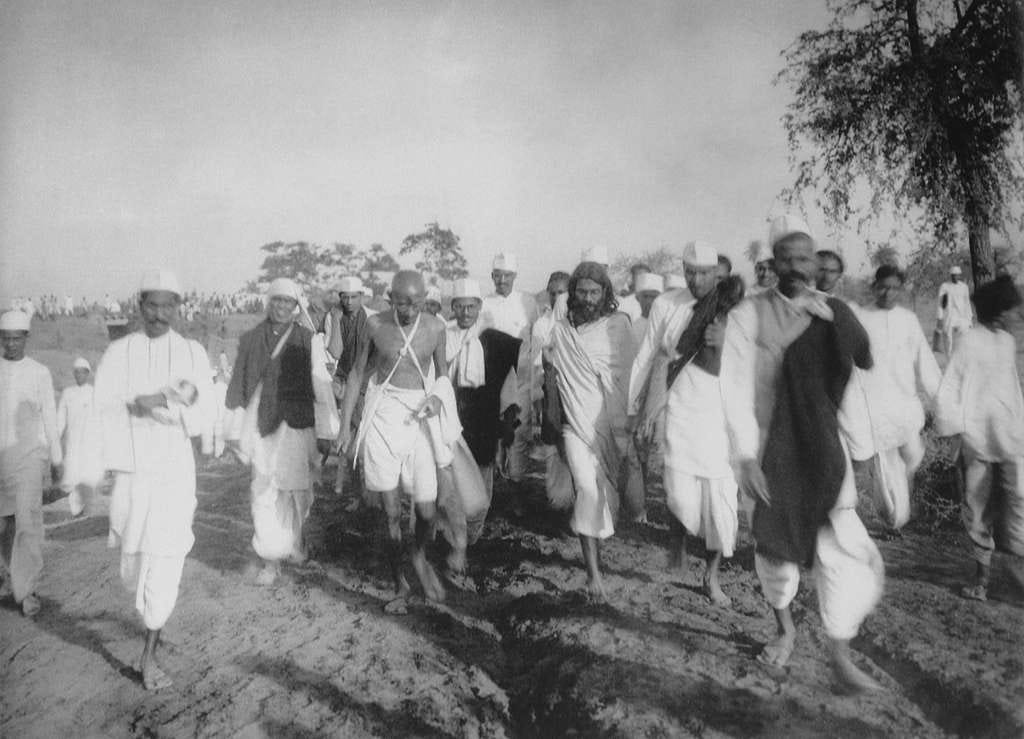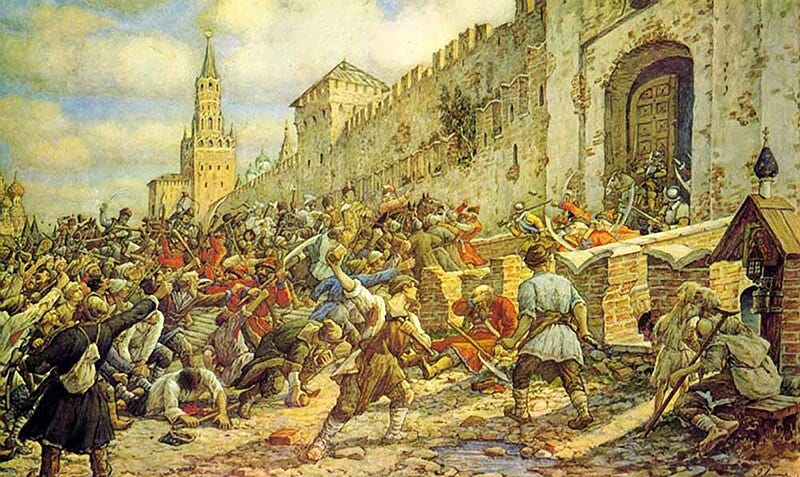“Grain by grain, salt’s frozen tears
Help me count history’s disasters.”
- Salt, Huang Fan
Salt.
Salt. Of the basic tastes. Of over-salted stews and under-salted bread. Of salt pans gleaming in the dead hours of the night, holding up a morose mirror to the sky. Salt-still. Salt-white. Salt of sea-brine and sea-blue. Of revolts and salt roads. Some nights, after the spilt salt is wiped off the table, I follow these narrow roads back in time. I see camels crossing drylands, salt blocks stacked on their yellow backs. I think about the salt of it all. Salt. Of rocks and mountains. Of taxes and wars. Salt. Of the earth. The people, searching for freedom in a fistful of salt. Continents away, the people, sifting grey salt out of wood-ash. Wood to ash. Ash to salt. Salt to tongue. Tongue to teeth. Salt. Of survival. Salt burn in the wound. Salt death; the slugs dying slowly in the ripe summer heat. Salt skin. Of sweat and tears. Salt in our veins. Salt of civilisation. Of pickles and preserves. Of table salt. Salt on soft eggs, just a pinch. Salt sharp. In my mouth, dissolving already. Mineral. Elemental. Almost ordinary.
“It is a village with no attractions. A strange thing about it is that its houses and mosques are built of blocks of salt and roofed with camel skins. There are no trees, only sand in which there is a salt mine. They dig the ground and thick slabs are found in it, lying on each other as if they had been cut and stacked under the ground. A camel carries two slabs. The only people living there are the slaves of the Massufa, who dig for the salt.”
- Ibn Battuta. On the salt mine settlement of Taoudenni in West Africa. 1352 CE. Secondary Source.
I’ll be back with more writing next week. Until then, take care
Love,
Anagha









You remind me that the English word "salary" is from the salt given to Roman soldiers in payment for a day's work.
This is beautiful! You have a gift Anagha!